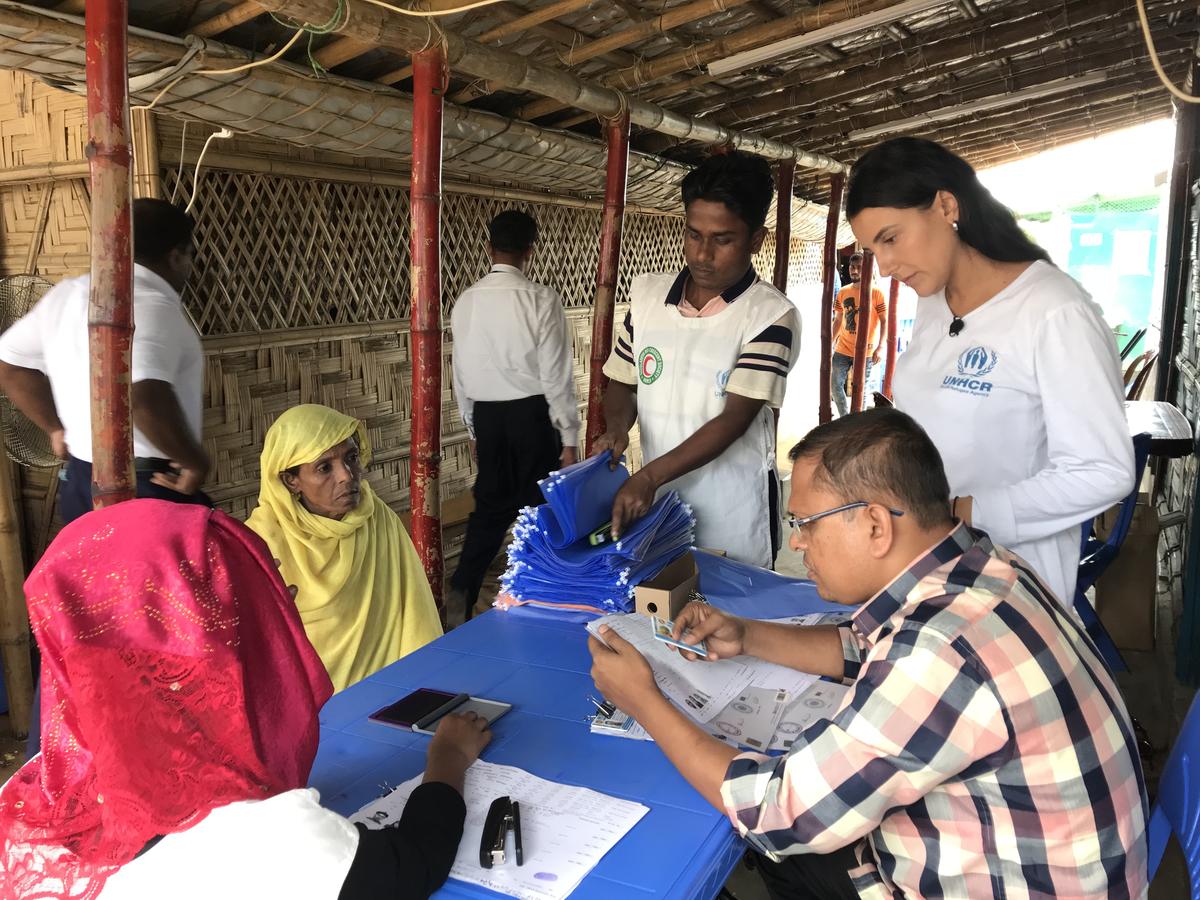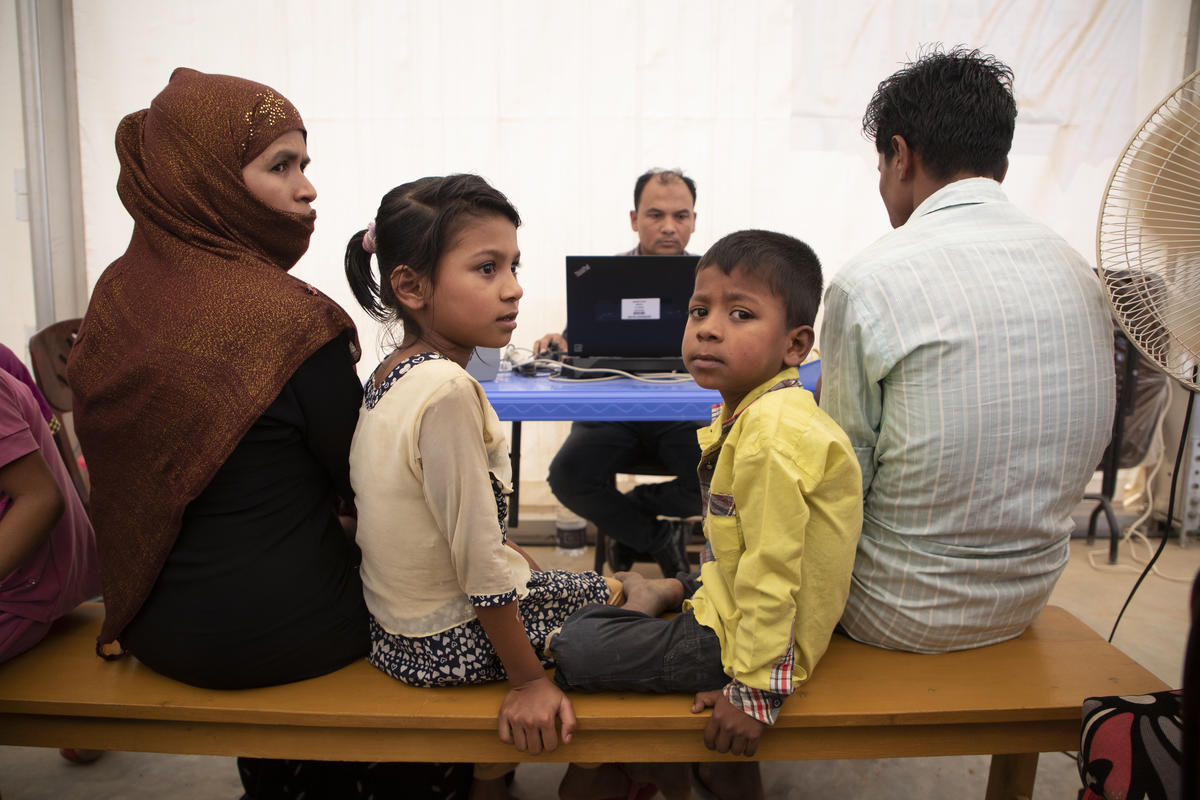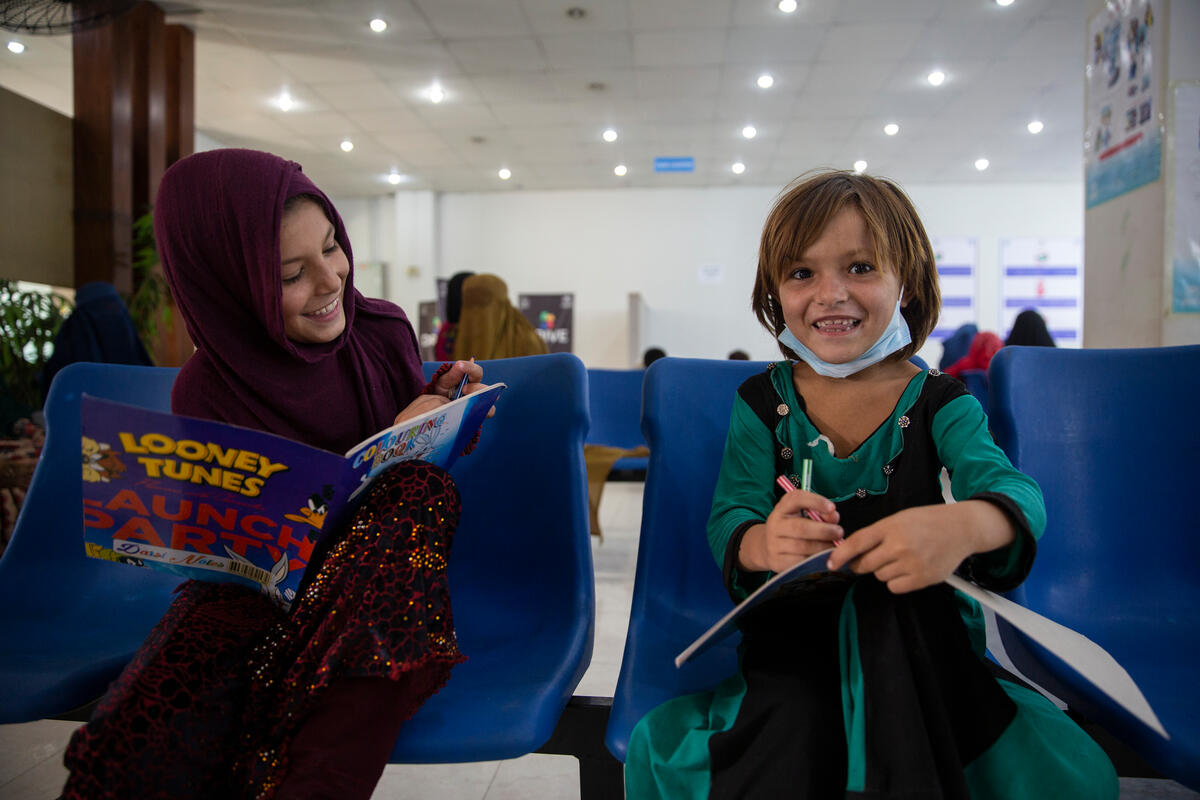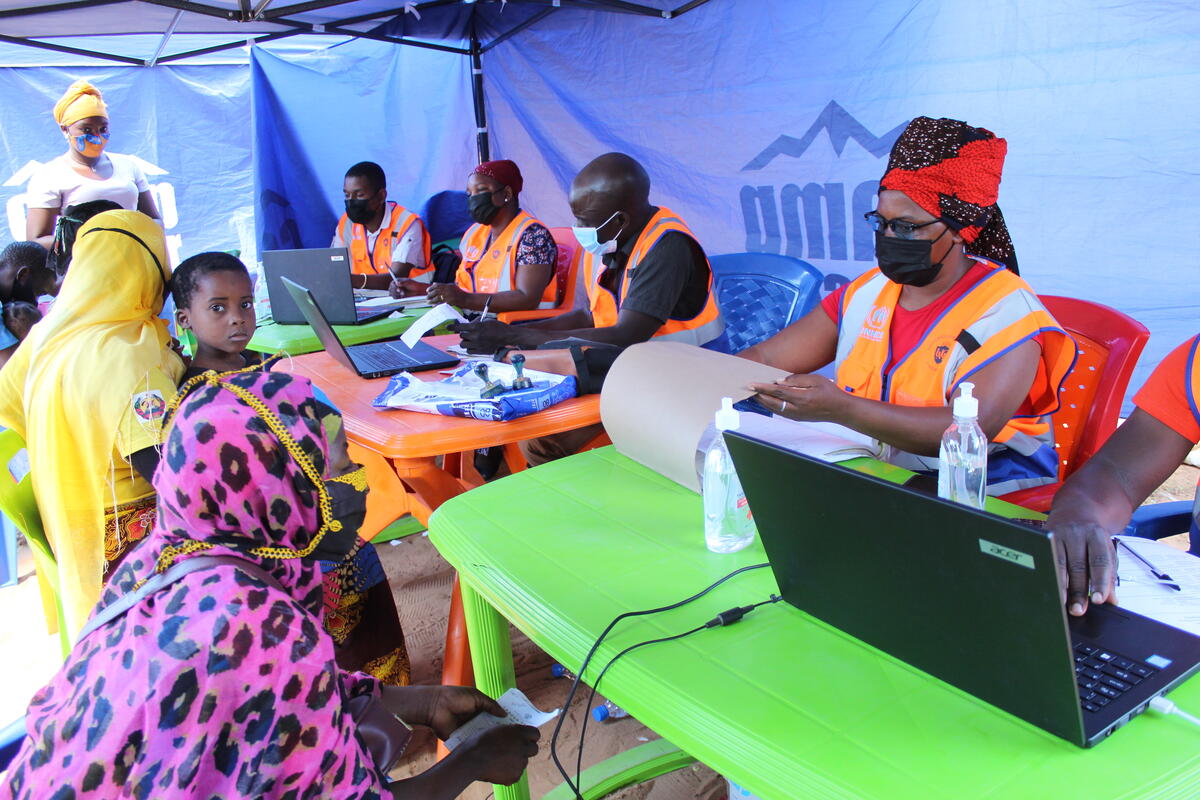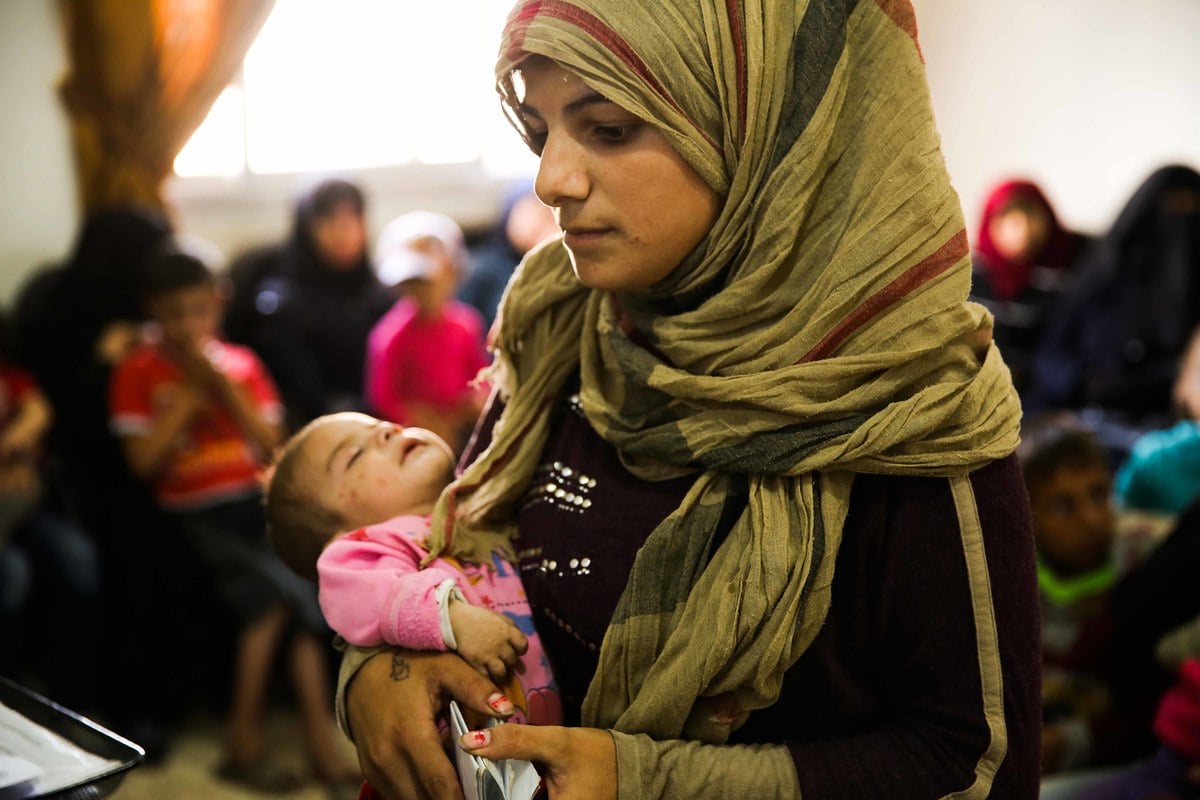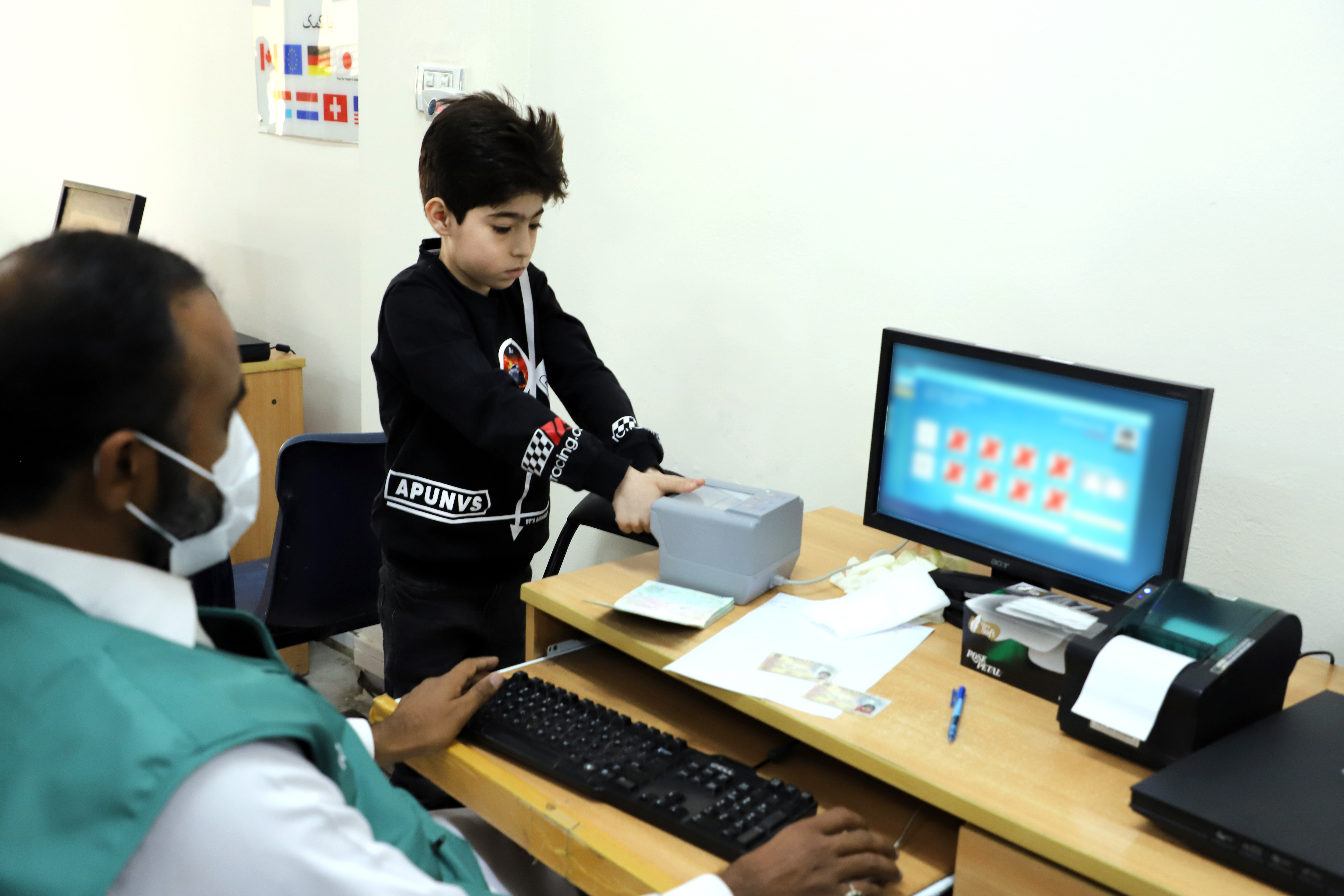UNHCR works through the night to register Syrians reaching Jordan
UNHCR works through the night to register Syrians reaching Jordan

AMMAN, Jordan, July 10 (UNHCR) - In the bleak early hours of the morning a Syrian family of five slowly steps out of a bus after a long journey from Jordan's border with Syria. Despite overwhelming fatigue, this is a moment of great relief. They are finally safe.
"We left our home in Syria 13 days ago. We left our home at five o'clock in the morning and continued walking until seven at night; we walked for long hours with brief stops in between. We had only bread to eat and no choice but to drink unclean water from swamps," says Maher, the family's father.
"Each one of my children was carrying a heavy bag and I had my youngest on my back and a large bag in my hand. We were constantly worried along the way, afraid of being bombed or killed, especially with such young children. We are very relieved to be here."
While the rest of Jordan sleeps, operations at the Raba Sarhan Registration Centre in northern Jordan don't stop. The Centre works 24 hours, seven days a week. The Centre has spacious waiting areas and 26 registration interview rooms that can cope with over 3,000 refugees per day. In its first six months more than 49,000 refugees have been registered.
Since the beginning of the conflict in Syria, Jordan has welcomed nearly 600,000 refugees from Syria. When people crossed unofficial borders, they were taken directly to refugee camps. This often meant waiting long hours to be registered.
In the Zaatari camp in northern Jordan, which opened two years ago, the registration team worked day and night shifts due to under staffing. When the number of people seeking refuge swelled, many had to wait more than half a day to get registered. This was overwhelming after an arduous journey, with many having escaped amid battles by warring factions.
The Centre is structured for speedy processing. Now, refugees can be registered within two hours. Also, extensive information needed to better protect refugees is collected. "Vulnerable cases such as unaccompanied children and women at risk can now be identified and referred immediately for follow up," says Mathilde Tiberghien, the Protection Officer who runs the centre.
The centre is funded mainly by the United Kingdom, with registration activities covered by multiple donors including ECHO, Japan, Netherlands and the United States.
In the interview room, the Syrian family sits comfortably on wooden benches, waiting their turn to answer registration questions. A staff member gathers all necessary information in a systematic manner and within 30 minutes, the entire family of eight is registered. A 7-year-old girl steps forward to have her irises scanned. For most it is their first iris scan and it is a small adventure. The staff asks her to keep her eyes open. In a couple of seconds, both irises are on record and a voice from the scanner saying "Shukran (Thank you)" makes the girl giggle.
Iris scanning began recently to prevent double registration. Before there were cases of people being registered both in urban and camp settings, but with iris scanning they can be registered only once. Also iris data is centralized regionally so an individual registered in another operation, such as Lebanon, can be detected and the registration in the second country is cancelled.
Once registered, ration cards are issued, entitling them to all assistance in the camp, including food and non-food items. They also receive a "service card" from the Jordanian authorities that shows basic personal information. This is their ID card. Previously, before Jordan issued such cards new arrivals had to give up their Syrian identity documents (eg. passports, ID cards) on entering the country. The Jordanian government kept those documents and refugees could reclaim them only when leaving the country. Now, they keep their documents.
"It is not easy always working at night," says Hamad Alenizi, the Registration Associate who has been on the night shift since the centre opened. "But I prefer this shift because this is when a majority of the tired refugees arrive, and I want to make the process as efficient quick as possible so that they can go rest and start their new life in the camp."
As he talks, the little girl waves at him as she boards the bus leaving for Azraq camp. "See you in Azraq!" says Hamad as he waves back with a big smile.
By Shigeko Nambu in Amman, Jordan




